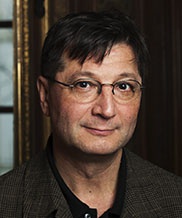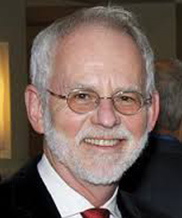Are We Beyond Being There Yet? This paper was accepted by CHI in 2021.
Interactive virtual conferencing has become a necessity in adapting to travel reductions during the global pandemic. The paper written for the 2021 CHI Conference, reports experience with a recent 5-week VR conference with participants from academia and leading industry experts.
Drawing on Activity Theory and Installation Theory, a structural grid for virtual conferencing activity analysis is described. We argue that for successful interactive virtual conferencing, the installation must facilitate both the development of knowledge and informal social interaction, the ‘epistemic’ and the ‘relational’.
We focus on three specific aspects of the conference activity—onboarding, networking, and intersession transitions—to highlight key issues and illustrate the process of design thinking based on distributed architecture. We discuss lessons learned to inform this fast-growing field: provisions for meaningful social interactions remain underdeveloped in current conferencing systems.
People Behind The Paper
 Saadi Lahlou is Professor and Chair in Social Psychology at the London School of Economics and Political Science, and Director of the Paris Institute of Advanced Study. His most recent book: Installation Theory. The Societal Construction and Regulation of Behavior (Cambridge University Press, 2017) has received international acclaim for its contribution to activity-based design. Saadi directed 4 other research units before this: the Consumer Research department of the Centre for Lifestyles and Social Policies (Crédoc, Paris), the Social Forecast Group at Electricité de France, the Laboratory of Design for Cognition at EDF R&D (the largest industry living lab at the time, which he founded and directed for 10 years), and the Department of Social Psychology at the London School of Economics and Political Science. He was a member of the steering committee of the Commissariat Général du Plan (French Prime Minister’s office), and he is a member of the boards of many organizations at national or European level and research programs. He has written 200+ papers, 5 books and many reports. He developed new methods of investigation in behavioral change, text mining, consumption process analysis, action research for innovation, and digital ethnography.
Saadi Lahlou is Professor and Chair in Social Psychology at the London School of Economics and Political Science, and Director of the Paris Institute of Advanced Study. His most recent book: Installation Theory. The Societal Construction and Regulation of Behavior (Cambridge University Press, 2017) has received international acclaim for its contribution to activity-based design. Saadi directed 4 other research units before this: the Consumer Research department of the Centre for Lifestyles and Social Policies (Crédoc, Paris), the Social Forecast Group at Electricité de France, the Laboratory of Design for Cognition at EDF R&D (the largest industry living lab at the time, which he founded and directed for 10 years), and the Department of Social Psychology at the London School of Economics and Political Science. He was a member of the steering committee of the Commissariat Général du Plan (French Prime Minister’s office), and he is a member of the boards of many organizations at national or European level and research programs. He has written 200+ papers, 5 books and many reports. He developed new methods of investigation in behavioral change, text mining, consumption process analysis, action research for innovation, and digital ethnography.
 Roy Pea is the David Jacks Professor of Education and the Learning Sciences at Stanford University, Co-Founder and Faculty Director of the H-STAR Institute, Faculty Director of mediaX at Stanford University, Director of the PhD Program in Learning Sciences and Technology Design, and (Curtesy) Professor of Computer Science. He has published widely on K-12 learning and education, especially in science, math and technology, and has a special interest in advanced technologies including scientific visualization, on-line communities, digital video collaboratories, collective intelligence, and mobile computers. Since 1981, Dr. Pea has been exploring how information technologies can support and advance the scientific understanding and practices of learning and teaching, with particular focus on topics in science, mathematics, and technology education and their associated symbolic and communicative interchanges that are integral to learning. His current work is examining how informal and formal learning can be better understood and connected, as well as developing the DIVER paradigm for everyday networked video interactions for learning and communications. Other current research includes the influence of point of view on video-supported learning and collaboration; precollege mobile science inquiry and learning with sensors; and informal math learning in families. He is co-author of the 2010 National Education Technology Plan for the US Department of Education, was co-editor of the 2007 volume Video Research in the Learning Sciences, and co-author of the 2000 National Academy volume How People Learn.
Roy Pea is the David Jacks Professor of Education and the Learning Sciences at Stanford University, Co-Founder and Faculty Director of the H-STAR Institute, Faculty Director of mediaX at Stanford University, Director of the PhD Program in Learning Sciences and Technology Design, and (Curtesy) Professor of Computer Science. He has published widely on K-12 learning and education, especially in science, math and technology, and has a special interest in advanced technologies including scientific visualization, on-line communities, digital video collaboratories, collective intelligence, and mobile computers. Since 1981, Dr. Pea has been exploring how information technologies can support and advance the scientific understanding and practices of learning and teaching, with particular focus on topics in science, mathematics, and technology education and their associated symbolic and communicative interchanges that are integral to learning. His current work is examining how informal and formal learning can be better understood and connected, as well as developing the DIVER paradigm for everyday networked video interactions for learning and communications. Other current research includes the influence of point of view on video-supported learning and collaboration; precollege mobile science inquiry and learning with sensors; and informal math learning in families. He is co-author of the 2010 National Education Technology Plan for the US Department of Education, was co-editor of the 2007 volume Video Research in the Learning Sciences, and co-author of the 2000 National Academy volume How People Learn.
 Maxi Heitmayer is a Social Psychologist working on the situated use of technologies, and especially smartphones. His research is based on the use of digital video ethnography techniques to study how users interact with their devices in naturally occurring contexts, what routines and behavioural patterns they have developed, and how this influences their decision-making processes, particularly regarding the use of time and the direction of attention. Maxi’s other research interests revolve around new research technologies, digital learning technologies, and research ethics. He holds a PhD in Psychological and Behavioural Science from the Department of Psychological and Behavioural Science at the London School of Economics and Political Science.
Maxi Heitmayer is a Social Psychologist working on the situated use of technologies, and especially smartphones. His research is based on the use of digital video ethnography techniques to study how users interact with their devices in naturally occurring contexts, what routines and behavioural patterns they have developed, and how this influences their decision-making processes, particularly regarding the use of time and the direction of attention. Maxi’s other research interests revolve around new research technologies, digital learning technologies, and research ethics. He holds a PhD in Psychological and Behavioural Science from the Department of Psychological and Behavioural Science at the London School of Economics and Political Science.
 Martha Russell is Executive Director of mediaX at Stanford University and Senior Research Scholar with the Human Sciences Technology Advanced Research Institute at Stanford. Dr. Russell leads business alliances and interdisciplinary research for mediaX at Stanford University. With people and technology as the intersecting vectors. Russell’s background spans a range of business development, innovation and technology-transfer initiatives in information sciences, agriculture, communications, and microelectronics – for businesses, universities and regional development organizations. With a focus on the power of shared vision, Russell has developed planning/evaluation systems and consulted regionally and internationally on technology innovation for regional development.
Martha Russell is Executive Director of mediaX at Stanford University and Senior Research Scholar with the Human Sciences Technology Advanced Research Institute at Stanford. Dr. Russell leads business alliances and interdisciplinary research for mediaX at Stanford University. With people and technology as the intersecting vectors. Russell’s background spans a range of business development, innovation and technology-transfer initiatives in information sciences, agriculture, communications, and microelectronics – for businesses, universities and regional development organizations. With a focus on the power of shared vision, Russell has developed planning/evaluation systems and consulted regionally and internationally on technology innovation for regional development.